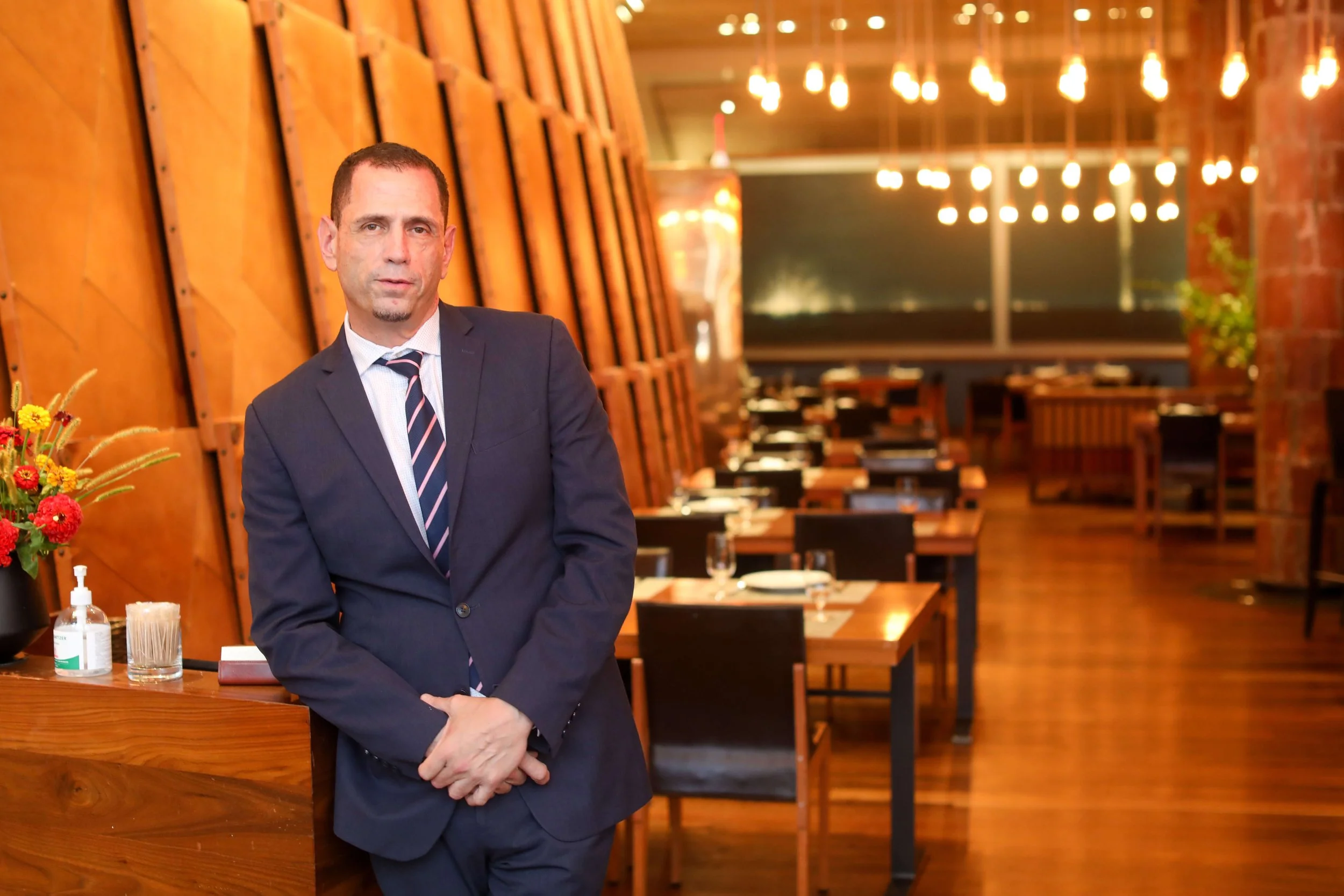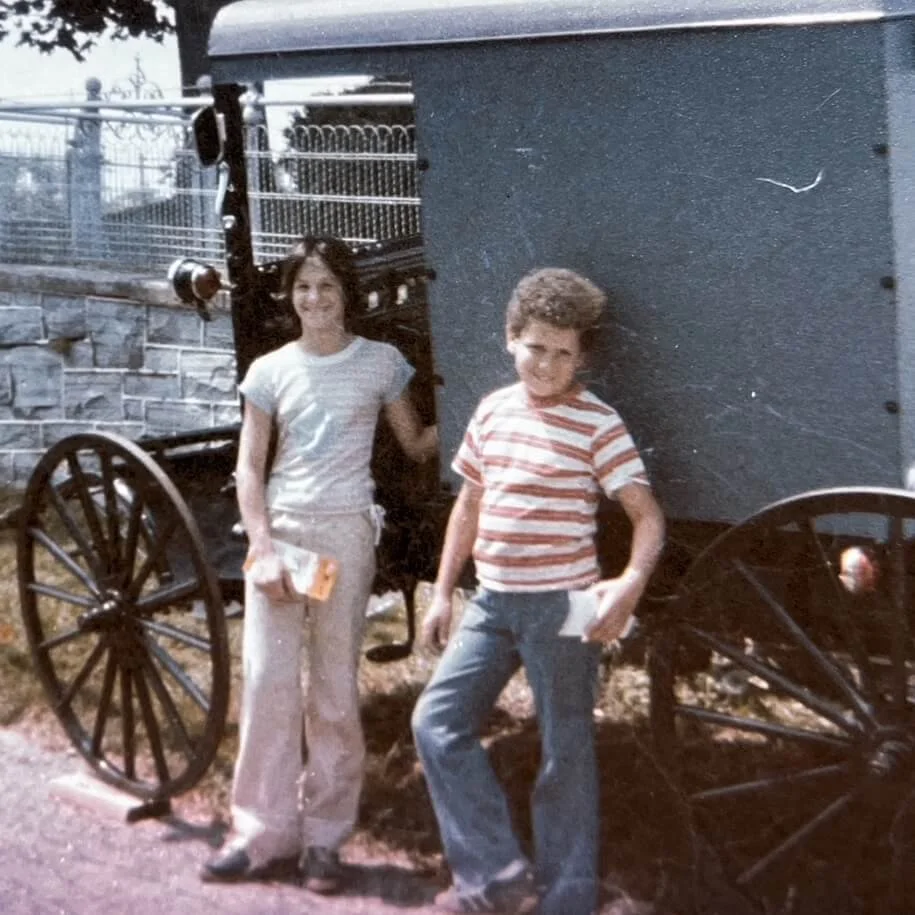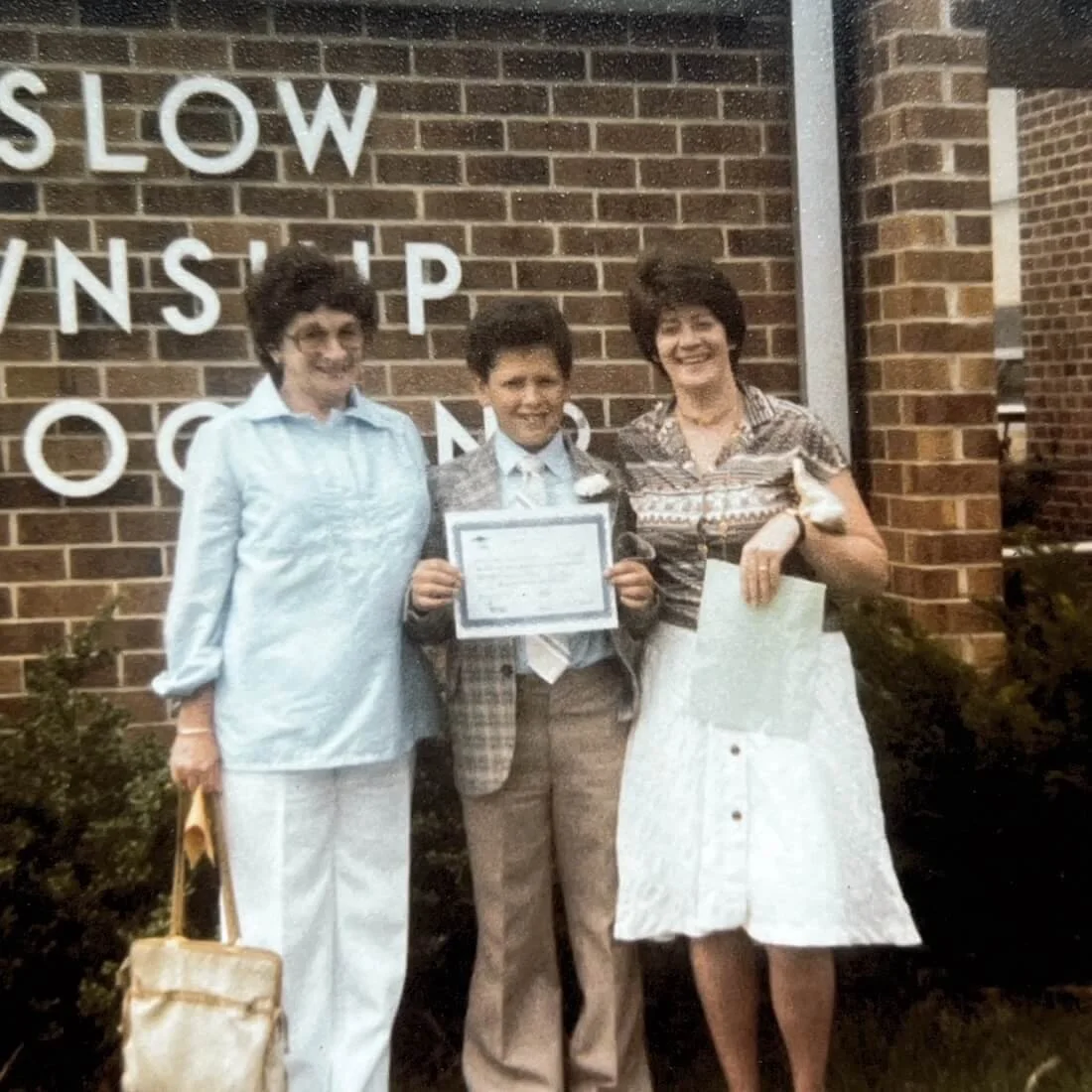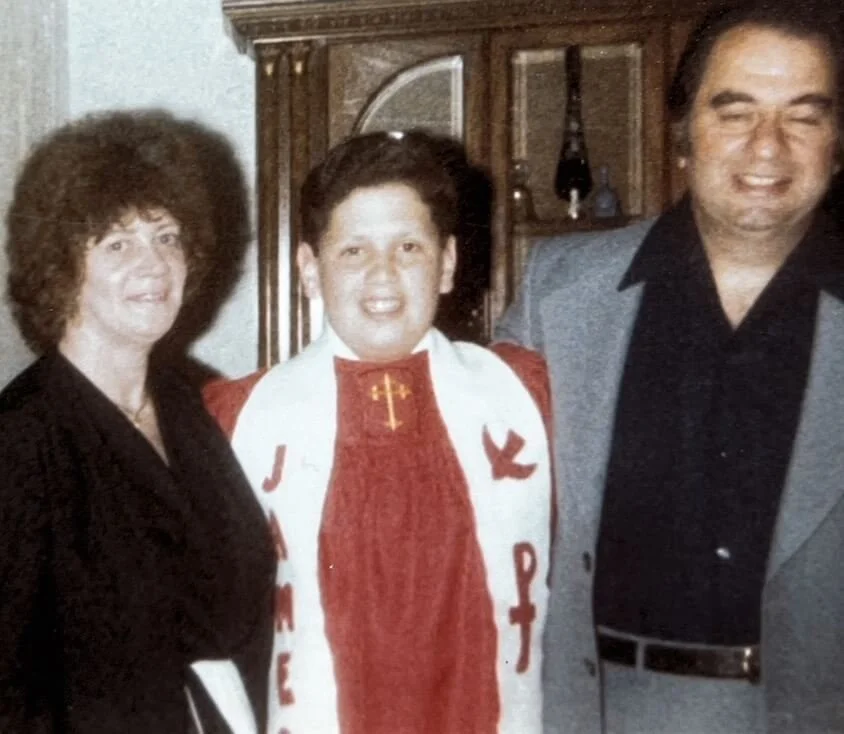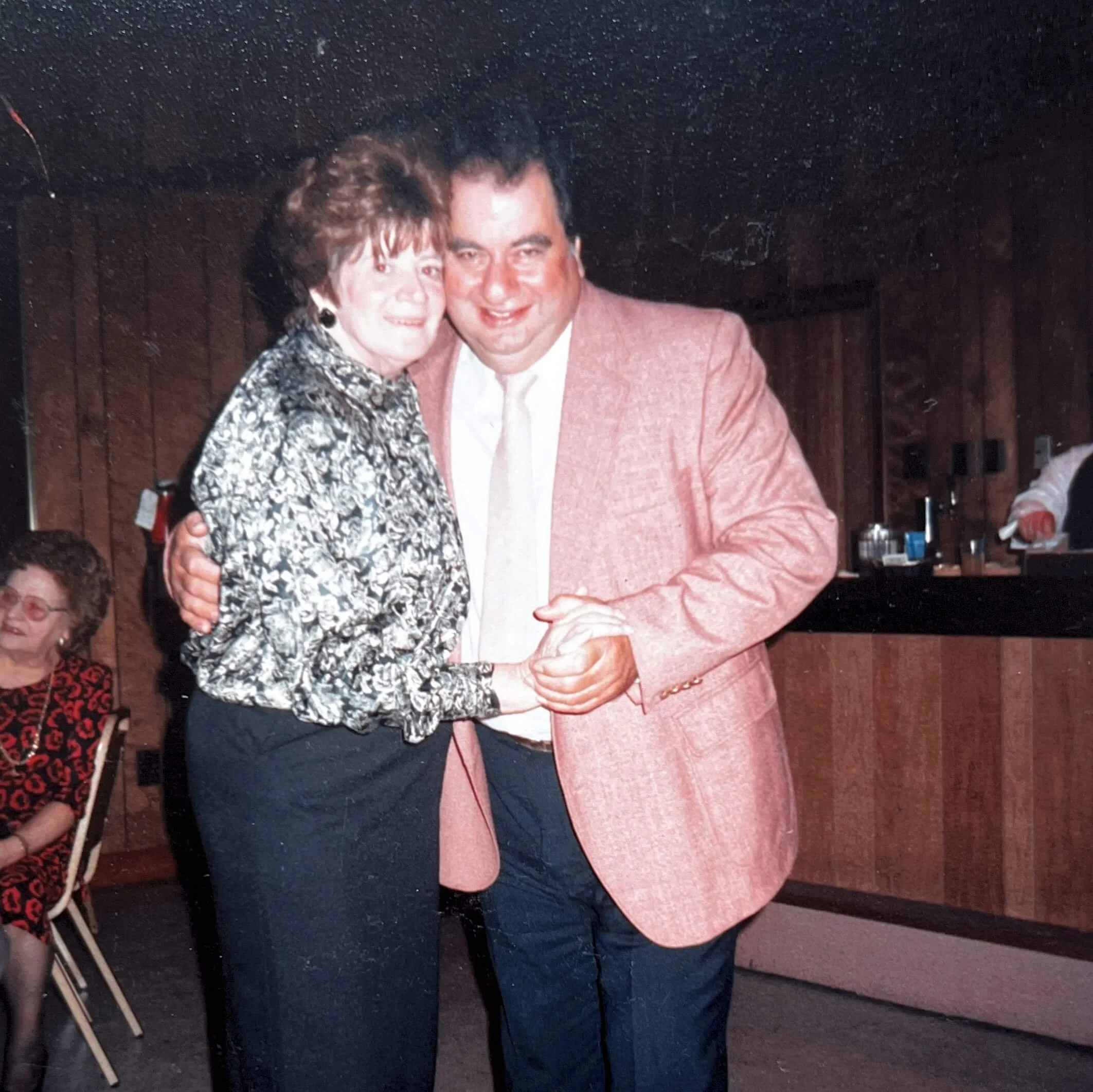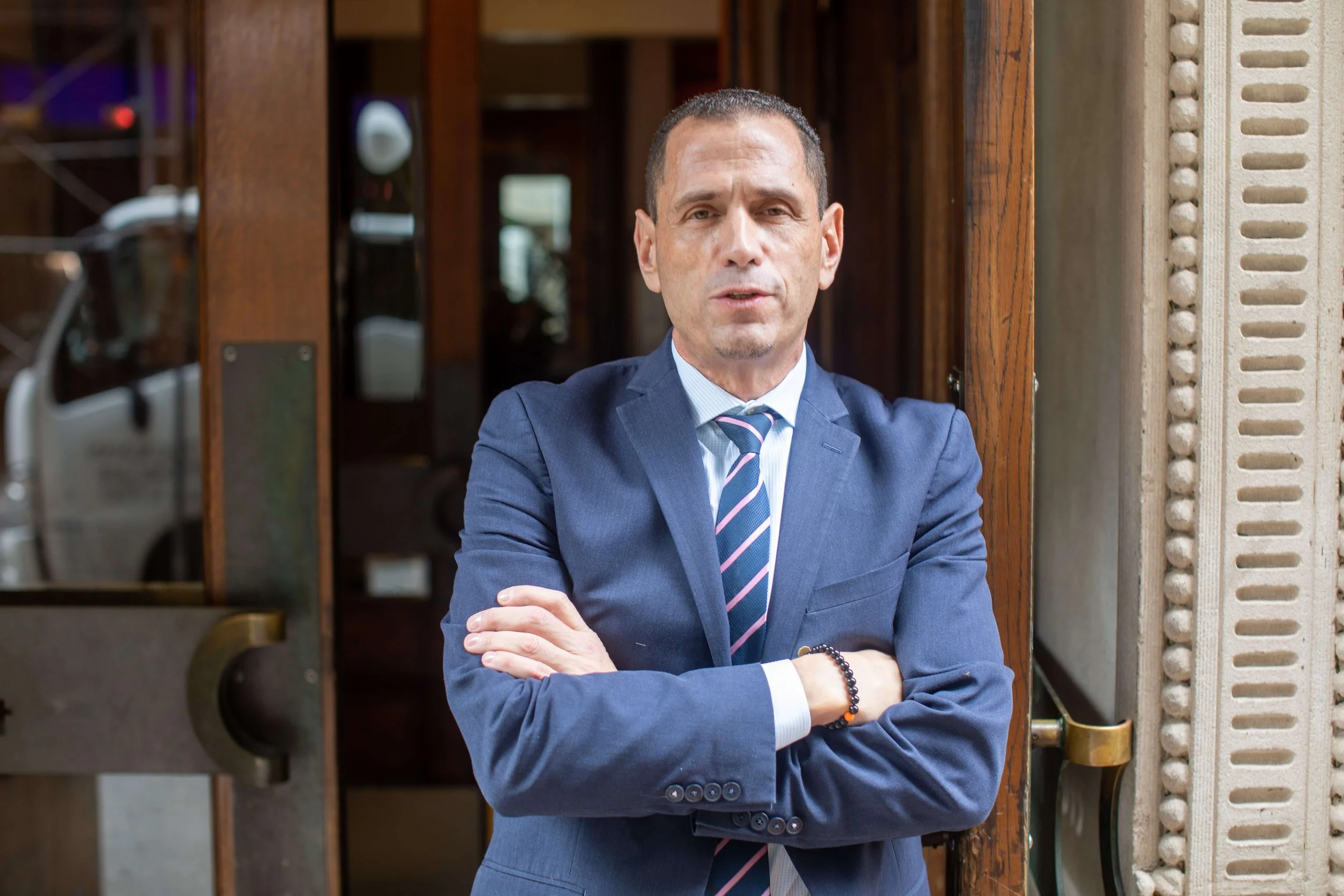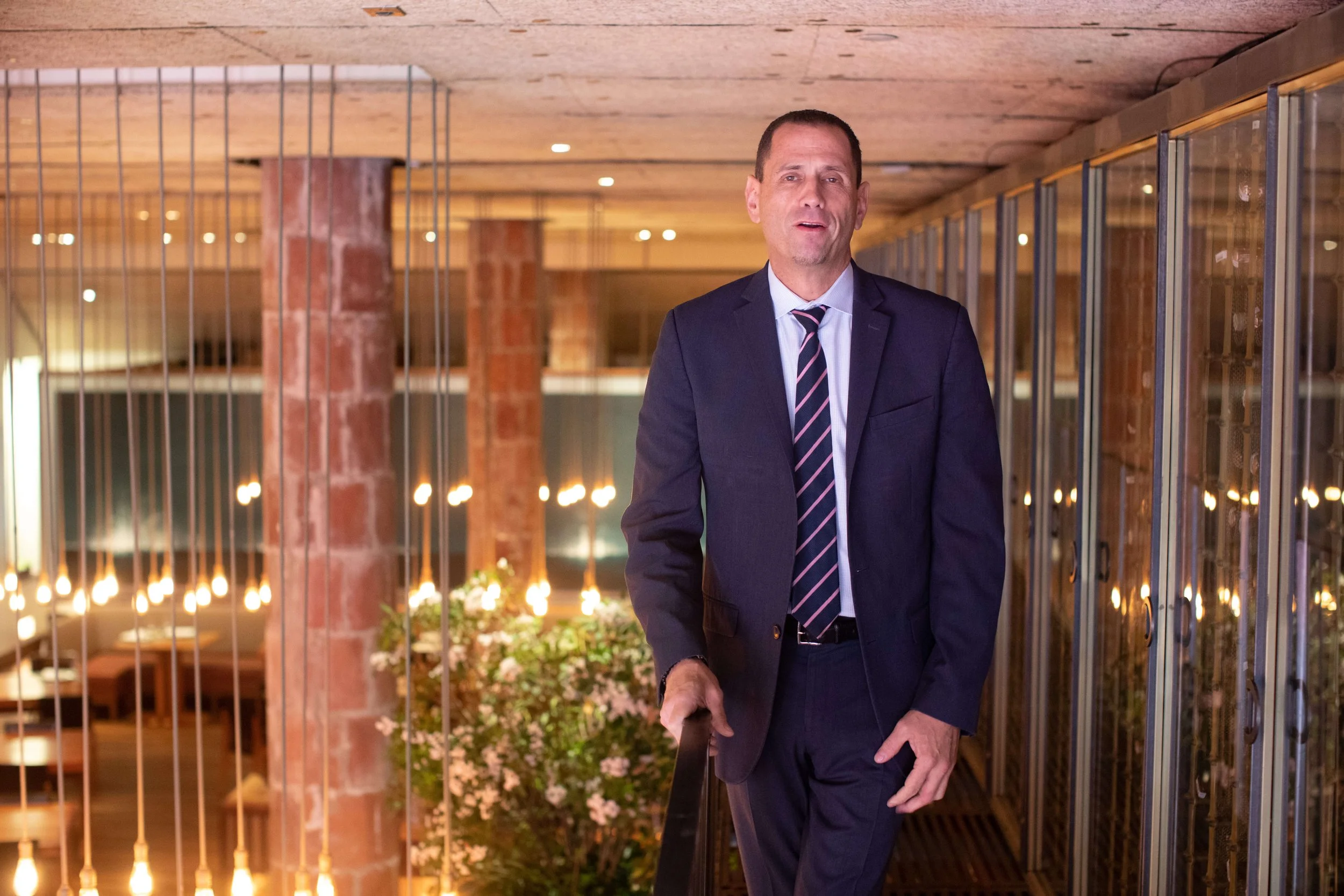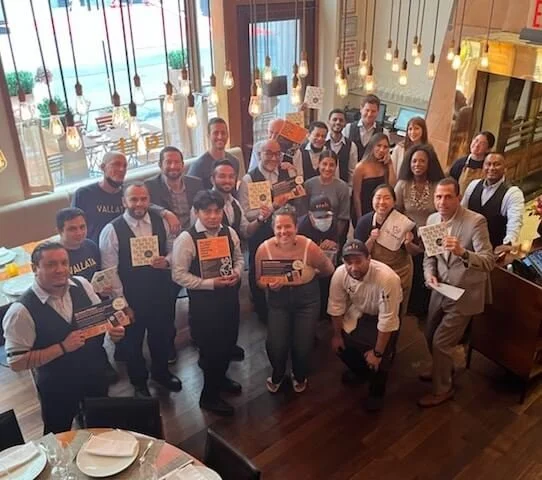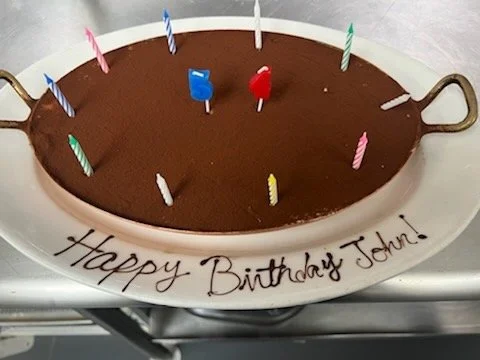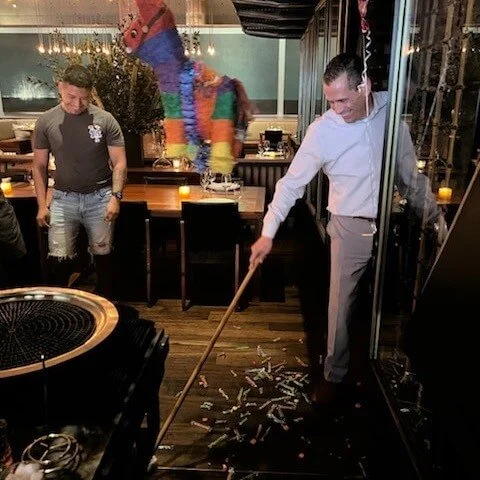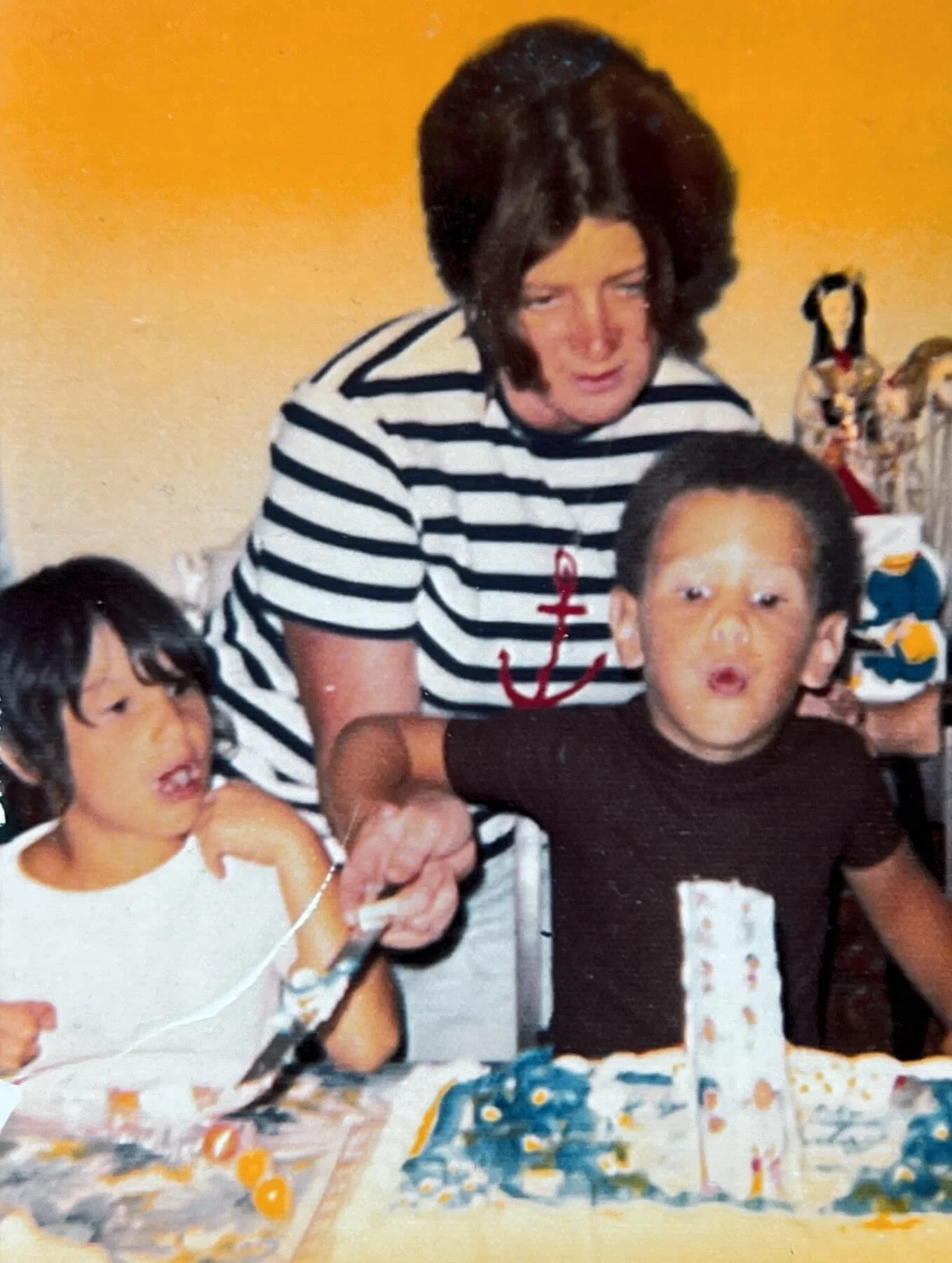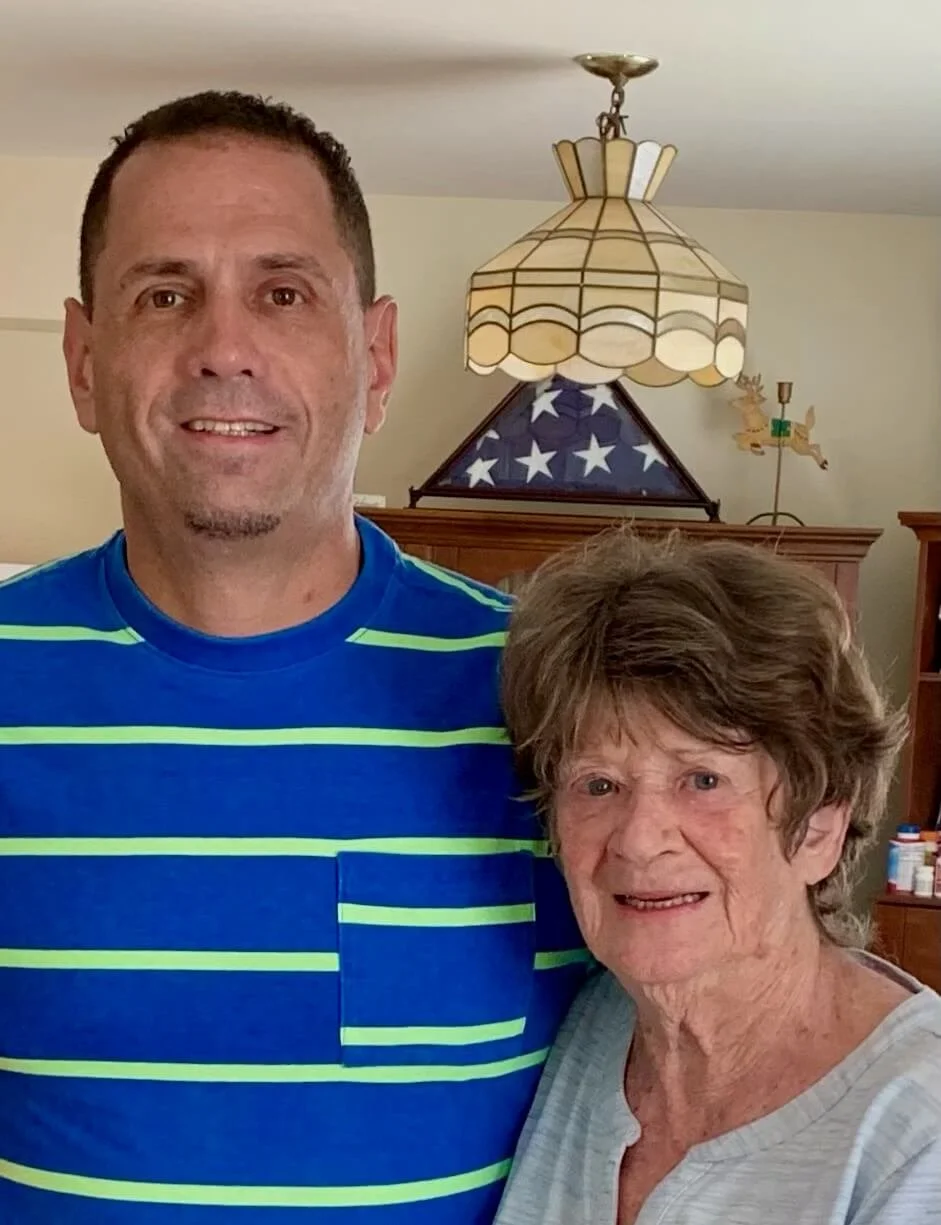Jon
Jon Gargano tells the story of his journey from meth-dealer to federal prisoner, to manager of one of New York City’s most celebrated restaurants. All told in a raw and honest voice that pulls no punches.
1.
It’s time for the show. When those doors open at 5 o’clock, it’s showtime. I tell that to every member of my staff, it doesn’t matter how you feel: you could be hungover, you could be facing eviction, your girlfriend could be home in bed with the neighbor. None of that has anything to do with the first guest who walks in the door, who chose this restaurant instead of 10000 others, because of its 21-year reputation for impeccable service. How do we make that person feel? That’s the essence of hospitality. And when you’ve spent a good portion of your life caged up like a monkey, eating food marked ‘not for human consumption,’ you might be a little extra attuned to how people feel. I’ll never forget the day of my sentencing. Worst judge in the Southern District. A living embodiment of the arrogance of the entire criminal justice system. First time I met him he had a golf club in his hands, and he’s putting golf balls across the courtroom floor. He says: ‘We going to trial today?’ Doesn’t even look up. It’s like I wasn’t even there. And after my trial, when that Fred Flintstone looking motherfucker said 240 months—I lifted my hands, started counting on my fingers, and divided 240 by 12. Twenty years. For a first-time offender. That’s when the rage started. But I didn’t know where to direct it. At Congress? For passing a mandatory minimum for drug offenses? At the scumbag with the golf club? I looked at my public defender, and she just shrugs. I look at the prosecutor, and she says: ‘I’m sorry Mr. Gargano, it’s the law.’ She wasn’t sorry. I was just another point on her scorecard. Bottled water, a day-old newspaper, meant to be thrown away. Inmate #56134066. That’s all I was to any of them. She’s going to come in here one day, the prosecutor who put me away. I’ve seen her name come up twice in our reservation system, but she’s cancelled each time. But one day she’ll come. I’ll walk up her to her table. I’ll say: ‘First time here?’, and I’ll hand her my card. I want to watch her face when she sees the name. She’ll probably say: ‘I heard what happened. I’m so happy for you.’ It’s nothing but a show. Really she’ll be thinking: ‘Wow. This motherfucker really did it.’
2.
My life of crime came to an end in Room 911 of the Philadelphia Lowes Hotel. Room 911. That was the Feds fucking with me. I hadn’t been in the room for 5 minutes when there was a knock on the door. A voice said: ‘Housekeeping.’ But I knew: ‘That’s not fucking housekeeping.’ Nine guys bust in carrying every type of gun known to man. And that was the end. Part of me was glad it was over.’ I’d become a scumbag. A complete, sociopathic scumbag. But before any of this happened, Johnny Gargano was a pretty good person. I really believe that. Not the most emotional guy. Not the most expressive guy, but certainly not a scumbag. I believed in right and wrong. I’d bring baskets of vegetables to my friends’ mothers. I was a freaking altar boy for ten years. Not saying that means anything-- those child molesting fucks. But with all things considered: a pretty good person. Then one afternoon I’m taking a nap on the couch, and there’s a knock on the door. It’s the Fed-Ex guy, with a package from the health insurance company. It says my application for coverage has been denied. Now there were only six reasons you could be denied. The first five were crazy bugs in Africa. I was a farm boy from New Jersey; I’d never been to Africa in my life. So that left the sixth thing: HIV Positive. How did I get it? Some things in life are nobody’s business. Not then, not now. It’s taken me 25 years to even talk about my diagnosis. I come from an old school Italian family where nobody talks about nothing, especially the men. Everything gets swept under the rug. Could all of this been avoided with a conversation? Who knows. But I didn’t know how to have it. I couldn’t handle the stigma. I couldn’t handle the shame. At the time I had a garden shop, with thirty greenhouses; I left them all behind. I packed up my shit and moved to Philadelphia. This was 1997; there were no miracle drugs back then. I thought 100 percent for sure I was going to die. I didn’t know exactly what was going to happen to me, but I knew it wasn’t going to be pretty. I felt like I’d just been ejected from a roller coaster, and I said: ‘Fuck it. I’m going to do whatever the fuck I want before I hit the ground.
3.
Three months later I’m out at a club with a friend. It’s 2 AM. I’m getting tired, so I say I’m going home. He pulls out a key and says: ‘sniff this.’ I’d never done a drug in my life, not even weed. Not even once. But I figured I’d be dead in two years anyway, so I said fuck it. One sniff. And that’s all it took. Meth makes you feel invincible. It erases all your insecurities. The perfect drug for a guy like me, hiding a secret like I was hiding. But it wasn’t cheap like today. And when you really want something, but you can’t afford it, there’s only one option. At first I was just selling to stay high, but I have to be the best at whatever I do. Not a bad quality when you’re managing a 5-star restaurant. Horrible quality when you’re selling meth. I went from a quarter-gram, to a gram, to an ounce, to a kilogram. Never violent, never hurt nobody. But the drug turned me into a sociopathic scumbag. I’d rip people off, and not give them their drugs. I’d get 57 parking tickets on a car I was borrowing. I withdrew from all my friends, all my family. My mother never gave up on me, I will say that. She’s relentless. It was four years of unanswered voicemails: ‘Why are you doing this? What are you running from? Why, why, why?’ There were no voicemails from my father. But I did see him once, at the garden shop. I’d lost 20 lbs. I hadn’t shaved. I hadn’t showered. He said: ‘Whatcha doin’ Johnny? You’re breaking your mother’s heart.’ And that was it. He could never tell me that I was breaking his heart too, because that would require an expression of emotion. But I didn’t care. I didn’t care about anything. I wasn’t even Johnny Gargano anymore; I was a taker. And every taker runs out of things to take, and people to take from. Takers end up in Room 911, with their face pressed against the carpet, and their hands cuffed behind their back. I’ll never forget when the Feds marched me out of the lobby-- this 6’5” black guy walks up. He’s wearing a suit. He’s got a walkie talkie in his hand. He says: ‘Excuse me, are you John Gargano? You’re never allowed in a Lowes Hotel again.’ Even the cops laughed at that one. I said: ‘Bro, I’m going to jail for the rest of my life.’
4.
The first place they took me was MCC in New York. Same floor Epstein killed himself. When they closed the door of that cell, I remember looking at the graffiti all over the walls. Grime everywhere. Hair on the floor a quarter inch deep. And sitting in the middle of the floor was two sheets and a blanket. I didn’t have the meth anymore. It was just me, those sheets, and that mess. I spent all my time imagining what it would be like to die in prison. Every little cold, every little stomachache, I thought: This is it. And what kind of death would that be? Everyone wants to die with dignity. But there was no dignity here. I didn’t tell a soul about my diagnosis. Show vulnerability, in this place? I’m no dummy. But the guards knew, because they had a list with a code next to my name. They kept making little innuendos. Fucking infuriating. I didn’t even talk about my diagnosis with the phlebotomist who checked my blood. But one day we’re in there alone, and I finally got the courage to ask him: ‘What do you think? Will I make it out of here alive?’ I’ll never forget him; his name was Alex. He said: ‘With the new drugs now, you’ll live longer than the rest of these clowns.’ It was my first glimpse of hope in six years, but it came too late. When you’re in prison: you might as well be dead. You’re in a coma. You’re not making new memories. You wouldn’t even know time was passing if it wasn’t for the 13th of every month, when your phone minutes reset. My first call was always to my mother. It was an ebb and flow. Most days she was upbeat. Other days it was: ‘Why? Why? Why?’ But she never left my side. Sent me a letter every week. Visited whenever she could. My father never came to see me, but I didn’t take it personal. He didn’t come to my baseball games either. Sometimes my Mom would hand him the phone, and he’d say: ‘I’m not giving up on you.’ That was it; it’s just who he was. He was an old school onion farmer. If you wanted to get a beer after work, and stare at the Eagles game on TV, he’d be there. But ‘I love you?’ Nah, none of that. That was Mom. Supposedly he changed after I went to prison, and I’m happy for that. I really am. But I never got to see it.
5.
I’ve tried therapy five times. And I’ve quit five times. They torture me with questions, just like you’re doing. How do you feel? How do you feel? There is no feel. My nerve tips have been incinerated. By HIV, by meth, by prison. The only thing I feel is the throttle in my hand when I’m cranking it. Maybe you have time to sit around, saying: ‘What if? What if?’ But I have a to-do list longer than Eighth Avenue. I can’t keep digging up the most shameful, the most aggravating part of my life. When I go back there, I start hating myself. And that leads to one place. That leads to meth. So after this, I’m done. No more interviews. No more therapy. In prison we had our own version of therapy. It was a track in the yard, if you could even call it that—100 yards of pebbles and potholes. But whenever things got to be too much, instead of slapping your cellmate for farting all night, you put on your headphones and walk the track. Think about anything you want. Just don’t think about the future; it’s the only way to protect yourself. Because nothing is in your control. Three years into my sentence my father was diagnosed with cancer. My mom had to deal with the whole thing herself. With everything else she was going through, she took him to all his appointments. One time I called her and they’d just gotten back from chemotherapy. They were still in the car, because my father had shit himself, and she couldn’t get him out. They were waiting on my Uncle Tommy to come help. How humiliating is that? The man who provided you everything, sitting in his own shit, for forty-five minutes, and you can’t do a thing. How’s that for being a complete fucking failure? We had one final call, right before he passed. He said: ‘I’m not giving up on you,’ same as the other times. But this time was different. This time was goodbye. He said: ‘Johnny, my time is about up. Take care of your mother and sister.’ I told him I would. But I wasn’t coming home for 15 years. We both knew I wasn’t going to take care of anyone. It was nothing but a show. When I hung up the phone, I wanted to scream at someone. But there was nobody but me. So I put on my headphones, and went out to the track.
6.
The other night I was having dinner on the patio with someone who was in prison with me. We were sitting under these $20,000 custom Swiss-made umbrellas. We ordered something simple. But when you’re the boss, they bring you everything. All of it served in copper plates from France: Shishito Peppers, Potato Gnocchi, Summer Squash. Everything hyper-seasonal. Everything fresh from the green market. At one point my friend says: ‘Isn’t this surreal?’ And it really was. Considering five years earlier we were standing in the cafeteria line with 950 inmates, wearing boxers and jumpsuits that 9,000 other people had worn. Inmate 56134066. There’s a saying in prison: one man, one armband. Because the number on your armband is the only thing that belongs to you. There’s 2.2 million people in the American prison system, and half a million of those are locked up for drug offenses. A lot of them were in the same boat as me: victims of the mandatory minimum. Passed by Congress in 1986, it’s the reason hundreds of thousands of nonviolent people—mostly black and brown people-- are rotting in prison. Rotting like the baloney and cheese sandwiches they serve for breakfast, lunch, and dinner. I did believe wholeheartedly in my petition for appeal; all of us did. But a prisoner filing an appeal is like a person buying a mega millions lottery ticket. Only 1 out of 100,000 get a post-conviction break. But it’s enough for the rest of us to torture ourselves with hope. You have no choice. You can’t survive without hope. I spent all my time in the legal library, crafting those appeals. None of it mattered. Denied by the District Court. Denied by the Third Circuit. The wheels of justice turn slow, that’s what my public defender used to say. I’d been in prison for ten years by the time my petition reached the Supreme Court. They were never going to accept my case; I knew that. They take like six cases a year, but it was the only hope I had left. I spent a thousand hours on that petition. It was 50 pages long. The rejection letter arrived three months later, in a tiny envelope. It said: ‘Shut the fuck up and do your time. And that was the end of hope. After that, there was nothing.
7.
When I got this job—I started at the bottom. Serving beers in a beer garden for $10 an hour. But I’m relentless. I did whatever I had to do: show up thirty minutes early, look your best, act your best. Do jobs that aren’t yours. If the table is 95 percent clean, make it 105 percent clean. If the guest wants one thing, bring them three. Say good morning before they do. Say good night before they do. Whatever it takes: to be the most seen, the most heard, to be the best. I’m relentless. Been that way my whole life. In prison I was a store man. It’s like a human bodega. There were seven of them on our compound, but I was the best. I had twenty lockers filled with cokes, candy bars, and potato chips. Each time a new prisoner came off the bus, I’d be there to greet him. I’d give him a care package: shampoo, deodorant, toothpaste. All of it for free. So the next time he needs a store man, he’s coming to me. It’s all about how you make people feel. It applies whether you’re in an upscale restaurant, or whether you’re in prison. I was a model inmate. Never had a single write-up. Not one altercation. And after six years they transferred me to a minimum-security facility in Montgomery, Alabama. It’s what’s known as a ‘camp.’ It had dorms, and a library. I had the best job on the whole compound: mowing the warden’s lawn. Tiny, Napoleon-ass motherfucker. But he had the best-looking lawn in the federal prison system. I made sure of that. I happened to be mowing his lawn on April 23rd, 2014, when I noticed everyone running to the prison yard. I knew there must be a rumor. Cause every time there’s a rumor, everyone runs straight to the yard. Usually the rumor turns out to be bullshit. But this time it was true: The Obama Administration had just announced a clemency program. Every federal inmate could apply for a presidential pardon. There were 200,000 federal inmates. Better odds than a mega millions lottery ticket, but not much better. I found a jailhouse lawyer named Dino, and we got started on my petition that same afternoon. I knew it was going to be the biggest fucking stack of applications in the world. And 56134066 was going to be sitting on the very top.
8.
I remember the night Obama got elected. Very few times in the history of my stay in prison, would something so earth-shattering happen, that it would lift the spirits of the whole compound. But it was one those nights. 11 o’clock is normally a dead time in prison. But everyone was gathered around the TV in the common area. And when he walked out on that stage in Chicago, and gave that speech, with Michelle and the kids at his side-- every last inmate was silent. No dominos were being slammed. There was no hyperness, no activity. It was completely still. It was hope. That’s what his entire campaign had been about: ‘Hope, hope, hope.’ And we felt it. We felt, finally: a guy who understands what’s going on in here. The overcriminalization. The overincarceration. The racial disparities. Were we hoping he’d repeal the mandatory minimum? I’d be lying if I didn’t say that. But the clemency program was something. It was more than anyone else had done. Me and Dino finished that application in record time. I included all my petitions for appeal. I included letters from friends and family who knew me, before the meth. Then I included one final letter-- to Obama. I appealed to the man himself, and my belief that he was a decent human being. I explained my diagnosis. I told my entire story, then I sent it off. I knew there wasn’t much of a chance. I was competing against every guy, in every facility, across the country. Every crack offender got sentenced to 100x the weight of cocaine. There were probably one hundred thousand more people deserving than me. And each petition was 100 pages long. They didn’t have time to study each one closely, I knew that. They’d be trying to find one reason to disqualify you. One single reason. A few months later I got a call from a lawyer at the clemency initiative. She said my file was about to be reviewed, but first they’d need an opinion from my sentencing judge: the scumbag with the golf club. They reached out to him, and a few days later they got his response. She read it to me over the phone: ‘Good conduct in prison is no reason for a sentence reduction. I recommend a firm denial.
9.
August 3rd, 2016. There was heat that took the breath out of you: Alabama, 150-degree, muggy, humid, nasty fucking heat. Thankfully I was the landscape clerk, so I had my own desk. I was sitting there when I heard this jive turkey redneck voice over the intercom, asking me to report to the warden’s office at 12:30. It sounded like I was in trouble. I went to lunch, asked a few people what was going on. But nobody knew. When I get to the office there’s like eight guys sitting on the bench outside. Nobody knows each other, nobody’s talking, nobody knows what’s going on. But at some point it hits me, and I ask: ‘Did everyone here apply for clemency?’ And they said yes. And I said: ‘Well guys, this is it.’ They got called in one-by-one. And one-by-one they came out, each one of them cursing and slamming the door. I’m thinking: ‘Fuck, this ain’t good.’ I was the last name called. The phone on the desk started ringing the second I walked in. The associate warden tells me to pick it up. Touching the warden’s phone means six months in the shoe, so I hesitated. He says: ‘That’s a direct order.’ So I pick up the phone, and a female voice says: ‘Is this Mr. Gargano?’ And I’m like, ‘yah.’ And the voice says: ‘We’re calling to let you know that President Obama signed your petition this morning. You’re going home in four days.’ I went completely numb. I don’t think I even gave her a proper thank you. The landscape clerk has a golf cart. So I sleepwalked to my golf cart, and I drove it to a courtyard. I’d planted some flowers there: it was part of my responsibility. I sat down on a bench, and I cried. I wanted to celebrate. I wanted to scream. There was a fucking 4th of July firework finale going on in my heart, but I kept it under a blanket. There were other guys around, who might be more deserving than me, and I wanted to be respectful. So I just cried. I cried for an hour. I stayed there until it was getting close to count time, then I walked back to my unit. I called my mom. She said: ‘Johnny, what’s wrong?’ I said: ‘Nothing’s wrong, Mom.’ She said: ‘Johnny, what is it? What’s wrong?’ I said: ‘Nothing’s wrong, Mom. I’m coming home. I’m coming home in four days.
10.
I was 48 years old when they let me out. Twelve years of incarceration. The HIV medication had decayed my bones so badly, I could barely walk. I needed two full hip replacements. When they were checking me out at Discharge, the guards made a joke. They said: ‘See you when you get back.’ Same joke they make with everyone. It’s what they want. They want you back. Because without inmates, there’s no funding. No free labor, no correction officer picnics, no paid overtime. They need you coming back; 78 percent of inmates are reincarcerated within 3 years. ‘See you when you get back.’ Not me, motherfucker. Not 56134066. You’re never seeing me again. I’ve lost too much time. I decided right then, limping across that parking lot, that I was going to beat these people. And there’s only one way to beat a system incentivized by your failure, and that’s by succeeding. They don’t lift a finger to help you. They let you out with no money, no clothes. No health coverage. Not even a fucking driver’s license. At least someone from the clemency initiative escorted me to a halfway house in the Bronx; most guys just get dumped at the bus stop. The halfway house is just another arm of the criminal justice system. So many rules that it’s nearly impossible to get a full-time job. Most guys just give up, but I tried. I sent out applications to restaurant after restaurant. I’d see the same ‘Help Wanted’ ads in the newspaper for weeks. But the moment they found out about my record, they didn’t want help from me. Not 56134066. I developed a phobia of telling people about my past. I couldn’t hear it one more time. It’s the same message, coming from everywhere: ‘You made your choice. You’ve chosen to belong to this class of people. Now stay there.’ The whole world is saying it: scumbag, scumbag, scumbag. Then somehow, all on your own, living off food stamps, despite all your regret, all your self-loathing, you’ve got to summon the fortitude to not believe them. While the whole time it’s right there. One sniff. One sniff to erase everything: the HIV, every year I spent in prison, every cop, every CO, every judge that made me feel like nothing. One sniff to feel invincible again.
11.
I’m not going to lie, man. I haven’t been an angel. I slipped. During the pandemic: alone in my room all day, no job, collecting food stamps, another year of my life down the drain. I slipped. But each time I’d think of Obama: how they ridiculed this man, and crucified him, for giving opportunities to people like me. What kind of payback would that be to him? I thought of every brother and sister in prison, waiting for their own Obama moment. What would that do to their chances? I knew it couldn’t just be about me. I’ve been there; I know where that leads. When it’s about me, I lose. After six months the halfway house wanted to discharge me into the NYC shelter system; I didn’t know what to do. It would have broken me. It was another inmate that suggested I meet with Iris. She was a case manager at Mt. Sinai hospital, working out of a 6x6 office. Nothing on the walls. I went there wanting to hate her, but I couldn’t. She was like Oprah: her voice was calm and comforting. We started going over my health questionnaire, and my entire history was in there. She wanted to know everything. No judgement. She just seemed interested; that’s all. Afterward she told me her own story. She’d gone to prison for her boyfriend’s drugs. Sixteen years; almost the exact same time as me. Now she was raising five kids. Youngest daughter died of cancer. Yet here she was: working 80 hours a week, in a 6x6 box, helping other people. She was one of the givers. Iris got me an apartment. She arranged my hip surgeries. She got me into a job training program. In the program they teach you to be up front about your history: tell them before they ask. I had a whole speech memorized. I scheduled six different in-person interviews, and six different times I couldn’t go inside. But the seventh time I made myself do it. I walked in those doors. The manager that day was Raven Peters, that big ole peckerwood. I said: ‘My name is John Gargano. Before we begin, I want you to know there’s a 15-year gap on my resume, and this is why.’ He wouldn’t let me finish. He said: “John, I don’t care about any of that. We care about two things here: how you treat our guests, and how you make them feel.
I spent the 4th of July alone in my new place. It’s a nice one-bedroom, overlooking the river. I cooked my favorite meal. Hard shell crabs, spread over pasta. I sat on the balcony and watched the fireworks. And suddenly I start crying like a baby, thinking about what they symbolize. The next morning I put on my suit, looked in the mirror, and called myself a pussy. My boss tells me I’m too intense. I get it. I’m too intense for myself; but there’s only one right way. One right way to be the best. And until it’s right, it’s not enough. It will never be enough; never, ever. I was supposed to die of AIDS in prison. That was supposed to be my legacy. They counted me out. A lot of people counted this restaurant out too. When we opened 20 years ago: Madonna was here, this star, that star, James Beard Award. But the New York dining culture moves on fast. Maybe some people thought we weren’t relevant anymore. Then the pandemic came. We were supposed to die. But look at us now: setting records, month-over-month. I wasn’t the only one to make it happen. It’s our whole team. It’s the way we make people feel. But it was my responsibility. I found every vendor that was overcharging us. I put an extra banquette on the wall, for thirteen more seats. I’ve got a list of 7,000 birthdays. And every person is getting an email, one week before, inviting them to celebrate at Craft. I’ll do whatever it takes. It will never be enough. Don’t tell me to let it go. Fuck you. That’s what everyone does; they let go of the anger. Don’t you understand? That’s what they want you to do. If they thought everyone was going to come home and be a motivated motherfucker asshole like me, maybe they’d fix the system. So your little brother, or your father, or your son, won’t have to deal with the same shit. How about you, Mr. Politician? When your son develops a drug problem because of your drive for power; maybe then you’ll care about the 2.2 million sons rotting away in prison, too ashamed to speak to their own fathers. You’ll be glad then that 56134066 didn’t let go. Not me, I’m never letting go. Never. Not until every single one of them says: ‘Wow, that motherfucker really did it.’
12.
13.
In prison there was a pill cart. They’d wheel it out at 5 PM, and they’d shout: ‘pill line!’ And everyone would get in line for pills. I wouldn’t do it. I told the warden: ‘I’d rather die. Either I keep my pills in my locker, or I’m not taking them.’ It’s been an obsession my whole life, keeping that secret. I gave a draft of this story to my bosses; just to let them know what was coming. Since then it’s been nothing but texts: ‘We love you, John. We’re proud of you.’ I guess it was a much bigger deal to me than everyone else. Last Friday was my birthday. Before the shift I could see everyone sneaking around. I thought: ‘They made me a cake, whatever.’ But it wasn’t just a cake. It was racks and racks of Philly Cheesesteaks. And an entire ice cream bar: hot fudge, sour patch kids, gummy bears. All my favorite stuff. The whole staff sang Happy Birthday, which I fucking hated. I’ve hated that song since the age of two. But then one of my bosses Maya gave a speech. She said: ‘John drives us fucking crazy, but we love him. And when his story comes out, you’ll realize he’s an even better human being than we realized.’ For her to say that: after knowing everything. I never knew. I just never knew people could feel that way about me. I grew up not knowing how to express. Then the HIV put me in a downward spiral of paranoia. Meth made it four levels deeper. And prison—prison threw dirt on the casket to make sure I’d never feel again. They almost got me. When they were singing that fucking song, they almost had me crying. But I said: ‘Listen guys, 5 more minutes to celebrate my birthday. Then it’s time for the show.’ The next day I drove out to New Jersey, to see my 86-year old mother. She can’t hear too well, so I read the story to her slow. She’s always been the one pushing me to get therapy. My whole life, I’ve been begging her: Stop worrying about me, Mom. Stop worrying if I’m ever going to be happy.’ But she’s relentless. It’s an obsession. But as I read the story to her, I could see it all drain out of her. Years and years of obsessive worry: gone. When I finished the last page, she said: ‘Johnny, maybe this can be the end. Maybe now you can let it go.’
